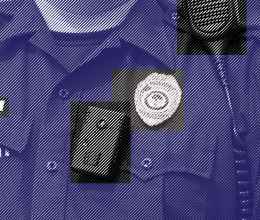COLUMBUS—The American Civil Liberties Union of Ohio blasted a recent policy adopted by the Columbus Division of Police that would deny public access to records of police investigations of murders while those accused are able to appeal their conviction. Journalists, public watchdog groups, family members of the victim and accused, and any other member of the public would be denied access to these documents until the defendant is exonerated, executed or dies in prison.
ACLU of Ohio Associate Director Gary Daniels said, “This policy represents a dramatic step backward in fairness and transparency in the criminal justice system. Police and courts work on behalf of the people, and must be accountable to them.”
“In various cases where defendants have been exonerated, it was only possible because the press or other watchdog groups had access to police documents that showed inaccuracies and inconsistencies in evidence presented during trial,” continued Daniels. “It is in the interest of everyone to ensure that the guilty are convicted and innocent are set free. Denying public access to records serves no purpose other than to keep law enforcement activities hidden in secrecy.”
The Columbus Division of Police’s decision comes at a time when the state is poised to increase access to evidence and information with the passage of Ohio Senate Bill 77 and Ohio Criminal Rule 16. SB 77 would require processes be in place to retain evidence in criminal investigations, while OCR 16 would expand defense attorney’s access to documents prosecutors previously did not have to share.
In 1994, the Ohio Supreme Court ruled that defendants and their attorneys should obtain police investigation documents through court proceedings rather than by public records request until they have exhausted all of their appeals. However, the decision did not limit the public’s right to obtain this information through records requests.
“Courts and law enforcement should employ policies that encourage public participation. The public must be assured that trials are conducted in a fair and transparent manner in order to guard against injustices. By creating more secrecy around investigations, they will only foster more distrust in the community and undermine their own work,” added Daniels.







